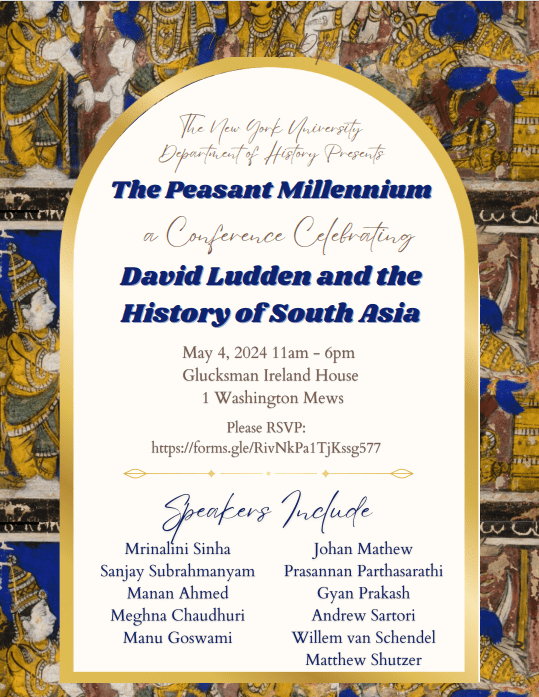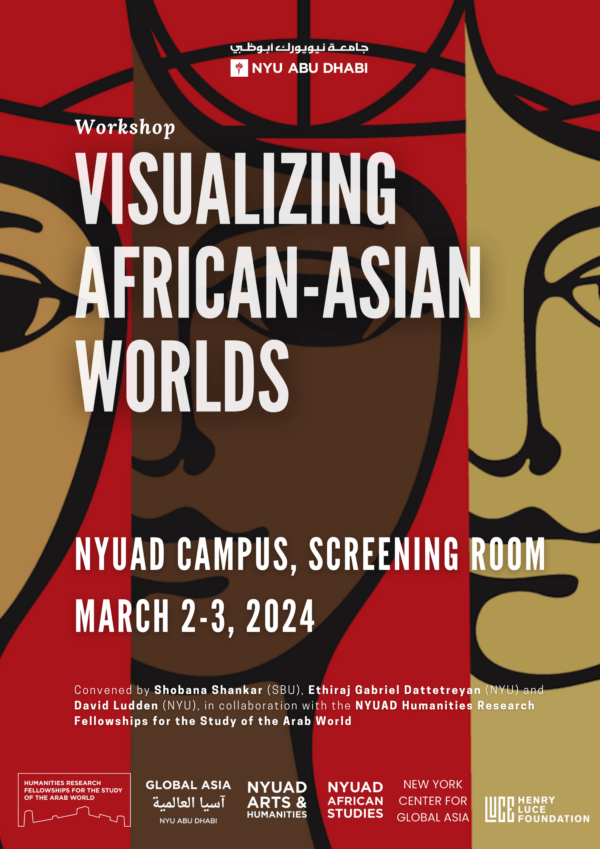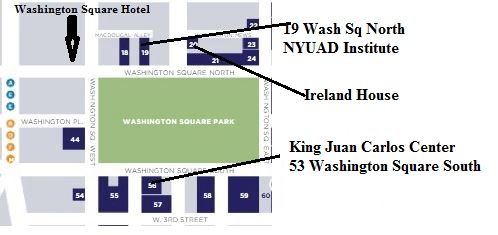HERE IS THE LINK to the Google Form in which you can enter information concerning your participation in the Conference.
Here is the link to the GoogleDoc containing abstracts of conference presentations.
Conference Program Plan (on 17 May 2018)
Goal, Format, and Procedure
This conference launches our Global Asia “Port City Environments” project, which is being funded by the Luce Foundation, over the next three years. Our goal in this project is to form collaborative relationships among NYU faculty and graduate students for research, teaching, and academic resource development on Asia’s very long-term globalization, based in NYU’s three Global Asia port city environments, in New York, Abu Dhabi, and Shanghai. Broad themes for this project are summarized in the graphic above: we think of port city environments in Global Asia as being composed and transformed over time by interactions of territoriality and mobility.
We launch the Luce Project in this conference by scanning the wide disciplinary range and thematic diversity of research that we could weave together in studies of port city environments. Everyone here will have a specific research interest, and eleven participants have volunteered to present representative projects. We have grouped them in two overlapping sets that indicate one way to frame collaboration: port city environments are territories shaped over time by mobility; and they also anchor networks of mobility that connect territorial sites over time.
We ask each presenter (1) to send an abstract to upload on GoogleDocs for everyone to read, and (2) to make a brief (15 minute) presentation, focusing on major themes that may form the basis for collaborative conversations.
On Friday, after each panel, we discuss themes that link he papers and also methodological and other ways to formulate collaborative conversations. We invite presenters and all participants in this conference to focus on what connects them, rather than on what makes them unique.
On Saturday morning, we start by considering one model of collaboration that could be applied in all three NYU port city environments: The New York Diaspora City Project focuses on the history of global migrant ethnic complexity in New York City. Next, we consider a method for collaborative teaching and research: digital humanities.
On Saturday afternoon, we break into discussion groups to work on collaborative cluster formation; and we end the day with a discussion of next steps, particularly the August Shanghai Conference, but also other events that are in the works.
Friday 25 May (KJCC Atrium and Auditorium)
9:00-10:00 Mini-Breakfast (KJCC atrium; coffee available throughout day)
10:00-11:00: Introductions, framing concepts (mobility, territoriality, and temporality), and the organization of the Luce “Port City Environments” project.
11:00-12:30. Panel 1: (Trans)forming Territory in Mobile Spaces
David Ludden (NY) “Imperial Nations and Mobile Spaces: Sylhet, Tirunelveli, Arakan”
Robert Parthesius (AD) “Port Cities in the Indian Ocean as Shared World Heritage”
Prita Meier (NY), “Photography as an artifact of mobility in Swahili port cities”
John Burt (AD) “Environmental Issues and Port City Urbanization in the Arabian Gulf”
Matt Shutzer (NY) “Fossil Fuel Value Chains in the Indian Ocean, 1870 – 1914”
Mark Selden (NY) “Environment and Development in China, U.S., and Asia-Pacific.”
12:30-1:00 discussion of the panel presentations
1-2. Lunch
2:00-3:15. Panel 2 (Trans)formative Networks Connecting Territories
Tansen Sen (SH) “Temple Heritage of a Chinese Migrant Community.”
Mark Swislocki (AD) “TBA”
Duane Corpis (SH) “Protestant Charitable Networks 18th C India”
Susanah Shah Romney (NY) “Batavia: connecting Indian and Atlantic oceans”
Norman Underwood (NY) “Roman Trade with India and China in the Digital Age”
3:15-3:45 discussion of the panel presentations
3:45-4:00 Coffee Break
4:00-5:00 Open discussion to formulate collaborative conversations
5:00-7:00 Reception
Saturday 26 May (KJCC Atrium, Auditorium, and classrooms)
9:00-10:00. Mini breakfast
10:00-11:00. Cluster Concept: The Migrant Ethnic Complexity of Port City Environments. One Model: “New York Diaspora City.” David Ludden, Jack Tchen, and Aruna Magier.
11:00-12:00. Digital Humanities: applications, training, and collaboration
1:00-2:00 Lunch
2:00-3:30 Cluster Group Meetings and: KJCC Seminar rooms and History Lounge.
3:30-5:00 Cluster Group Reports: KJCC auditorium.
5:00-5:30 Looking forward Shanghai Global Asia Conference in August
Monday 28 May: Business meeting. Open to all. (History Department Lounge, KJCC 4th Floor). Please note: Monday is Memorial Day and the University is closed. Entrance to KJCC requires advanced arrangements.


